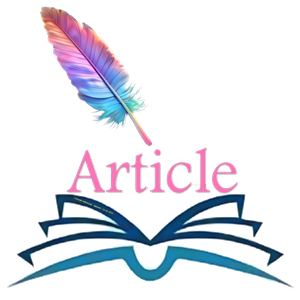Title: The Description of Nature in the Works of the Travel Genre: The Case of Karakalpak Writers
Mambetnazarova Rano Kuanishbaevna
The Karakalpak scientific-research Institute of
Humanitarian Sciences of the Karakalpak branch of the Academy of Sciences of
the Republic of Uzbekistan, Uzbekistan
Abstract
The subject of research in this work is the genre of travel in Karakalpak Literature. It analyzes the works of the travel genre of individual Karakalpak writers who have visited abroad in various years. The research material was the poetic collection of the national poet of Karakalpakstan, Hero of Uzbekistan Ibrayim Yusupov Evenings of Distant Malaysia, Caucasus, and travel notes of the Karakalpak writer and scientist Kamal Mambetov Travel, which includes several sections: Travel to India, Hello, Sri Lanka, Shores of the Black Sea of the Caucasus, In the Native Nogai Region, and The ancestral homeland Turkestan. The travel diaries of Karakalpak writers Gulaisha Esemuratova’s American Impressions and Zubaida Ishmanova’s Travel through Europe are also touched upon. Along with the above-mentioned works, the travel notes of the Karakalpak scientist Tazhen Izimbetov Travel to Five Countries across the Ocean and the Karakalpak poet Maten Seitniyazov Travel to Seven Countries are studied. In particular, the author notes that with the motive of the road in literary travels, a special place is occupied by the description of nature and terrain. In her work, the researcher emphasizes the author’s position and subjectivity in travel works in transmitting unknown information to readers. At the same time, in literary travels, the motive of the road occupies a central place, since on the way a person learns about himself, better understands his country, his people and his spiritual roots. The relevance and scientific novelty of the work lie in the insufficient study of the genre of travel in the Karakalpak literature and the author’s attempt to study the issue. The author considers the motive of the hero’s journey in comparison with the motive of return.
Keywords:
Architecture, author-narrator, diary, interior, landscape, Karakalpak literature, nature, Travel Genre
How to Cite this Paper:
Mambetnazarova, R. K. (2024). The Description of Nature in the Works of the Travel Genre: The Case of Karakalpak Writers. ATRAS Journal, 05 (02), 265-279
DOI:
https://doi.org/10.70091/Atras/vol05no2.21
References
Esemuratova G. (1995). Collected works. Nukus: Bilim
Guminsky V.M. (1987). The Literary Encyclopedic Dictionary. Edited by V.M. Kozhevnikov, P.A. Nikolaev. Мoscow: Soviet encyclopedia.
Ishmanova, Z. (2019). Travel through Europe. Nukus: Karakalpakstan
Izimbetov, Т. (2011). Travel to five countries across the ocean. Nukus: Karakalpakstan
Mambetov, К. (1993). Travel to India, Sri Lanka and Caucasus. Nukus: Karakalpak lang.
Mirziyoev Sh.M. (2023). Presidential Decree dated 04.26.2023 “On additional measures to accelerate the development of the Republic’s tourism potential, as well as further increase the number of local and foreign tourists. Tashkent.
Seitniyazov, М. (1990). Travel to seven countries. Nukus: Karakalpakstan
Shachkova, V. А. (2008). “Travel” as a genre of fiction: issues of theory. Bulletin of University of Nizhegorod named after N. I. Lobachevsky.
Sultanova, J. О. (2023). Travel essay: the image of the road in Kyrgyz journalistic poetry on the example of the work of Omor Sultanov. Bulletin of KRSU. Bishkek.
Yusupov, I. (1989). Evening of distant Malaysia. Nukus: Karakalpakstan

Copyright for all articles published in ATRAS belongs to the author. The authors also grant permission to the publisher to publish, reproduce, distribute, and transmit the articles. ATRAS publishes accepted papers under the Creative Commons Attribution-NonCommercial 4.0 International (CC BY-NC 4.0) License. Authors submitting papers for publication in ATRAS agree to apply the CC BY-NC 4.0 license to their work. For non-commercial purposes, anyone may copy, redistribute material, remix, transform, and construct material in any media or format, provided that the terms of the license are observed and the original source is properly cited.







































































